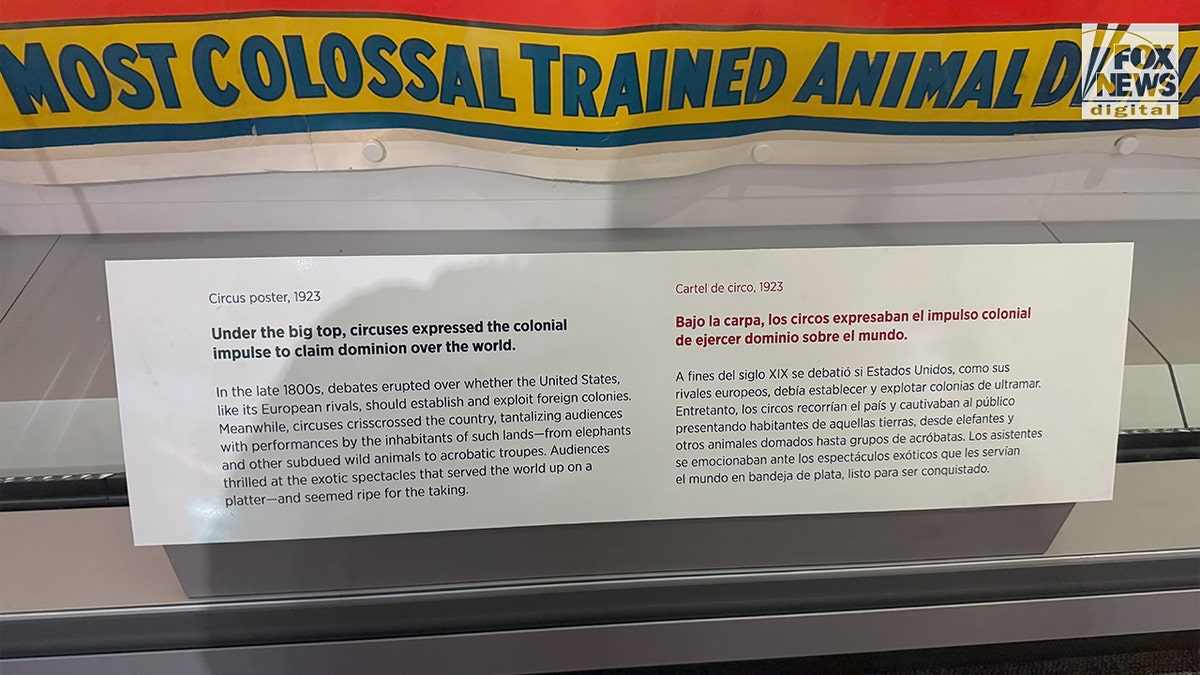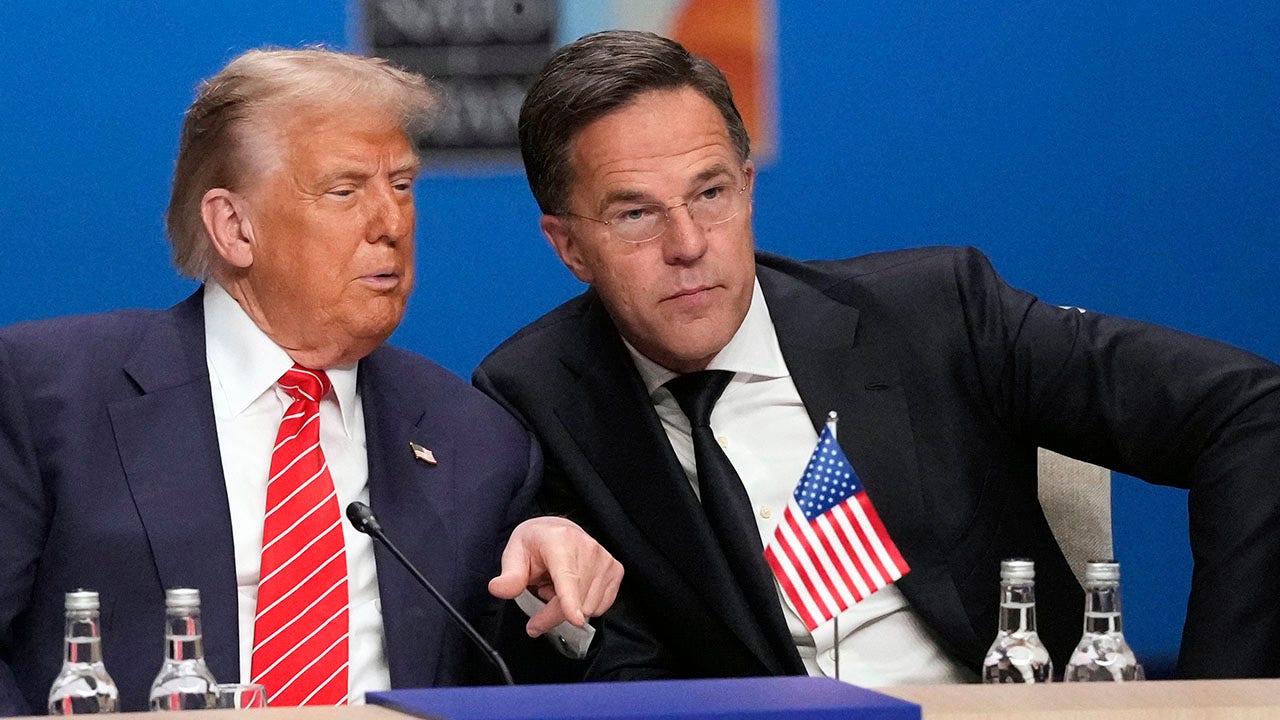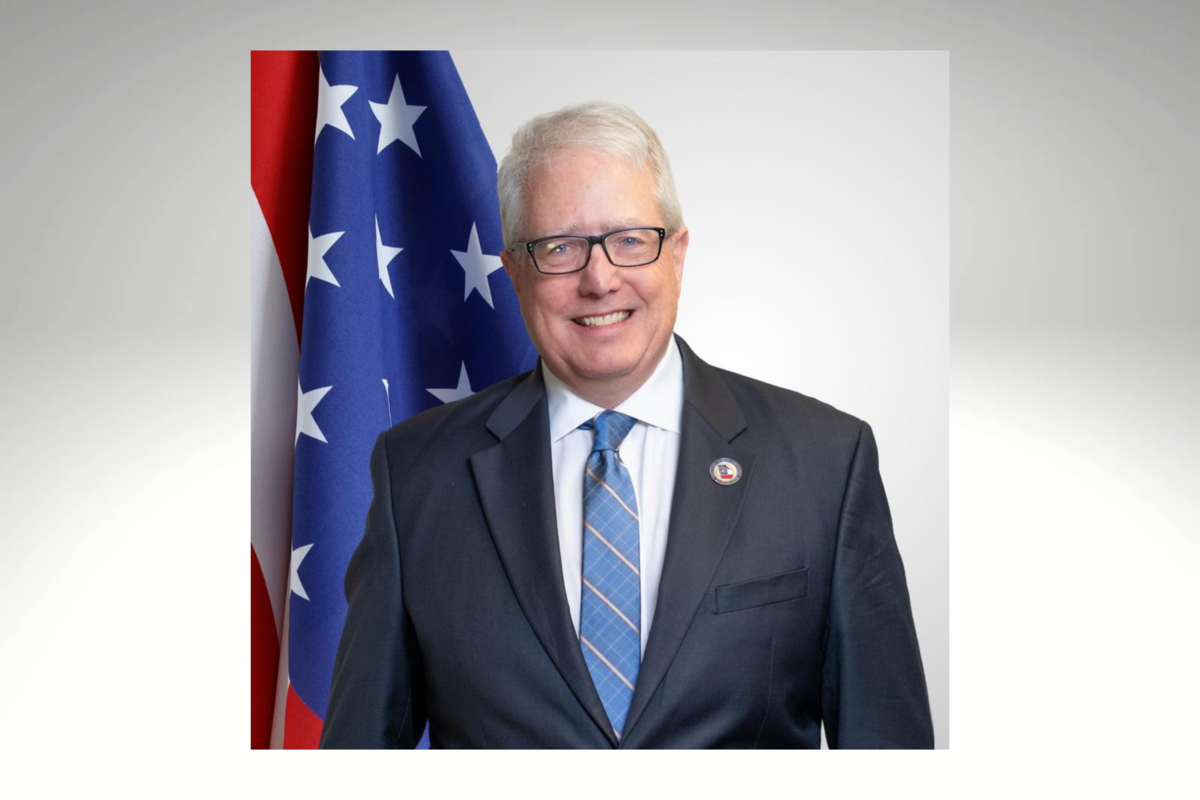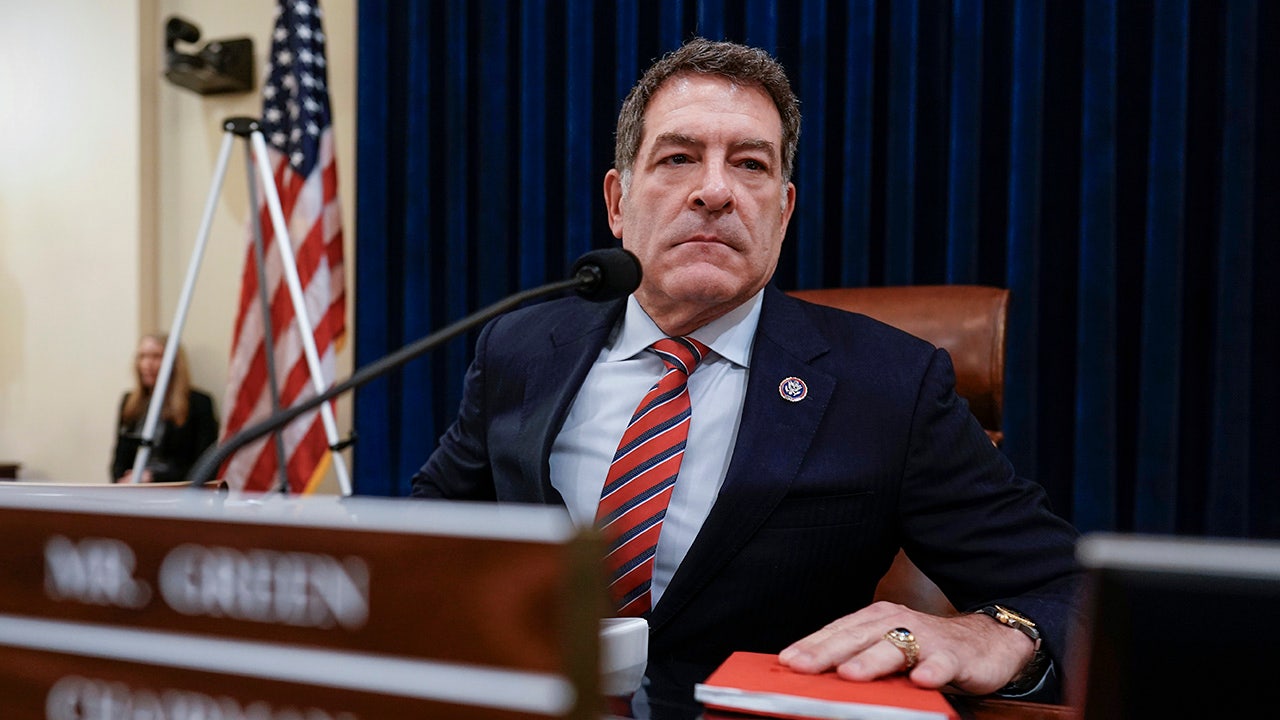Politics
ICE makes requests to hold jailed illegal immigrants for potential deportation drop under Biden: data

Detainers issued by Immigration and Customs Enforcement for jailed illegal immigrants dropped sharply in the first months of the Biden administration, new data show, part of a broader drop in interior immigration enforcement under the administration.
Detainers are requests issued by ICE that the agency be notified when an illegal immigrant in another law enforcement agency’s custody is being released so that agents can transfer them into ICE deportation proceedings.
The use of ICE detainers has been the central issue over the “sanctuary city” debate, where so-called sanctuary jurisdictions will bar local law enforcement from cooperation with most ICE detainers.
SUPREME COURT HANDS BIDEN ADMIN MAJOR WIN ON CHALLENGE TO ICE ENFORCEMENT POLICY
ICE agents conduct an enforcement operation in the U.S. interior June 2, 2022. (Immigration and Customs Enforcement)
“Detainers are an effective tool in keeping criminals out of local communities by allowing ICE officers to take custody of criminal noncitizens within the confines of a jail,” ICE’s website says.
“When law enforcement agencies fail to honor immigration detainers and release serious criminal offenders onto the streets, it undermines ICE’s ability to protect public safety and carry out its mission.”
But data obtained by the Transactional Records Access Clearinghouse (TRAC) at Syracuse University show that, in 2021, the agency under the Biden administration used detainers much less frequently than the Trump administration.
The data show that the number of detainers issued dropped from around 10,000 a month at the end of the Trump administration — after having hit highs of around 15,000 a month in 2018 — to under 3,000 in the first months of the Biden administration. The number of detainers fell to just 2,200 in March 2021 and then increased to just under 4,000 by September 2021.

Protesters rally outside City Hall July 12, 2020, in Seattle. (Karen Ducey/Getty Images)
TRAC notes that the number of detainers issued, which does not necessarily coincide with the number of immigrants the agency transferred into its custody, is an indicator of the intensity of interior enforcement.
The highest use of detainers was under the Obama administration. In fiscal year 2010 under Obama there were approximately 300,000 detainers issued. That dropped to under 100,000 by fiscal 2015 before increasing to a high of 175,000 a year under the Trump administration.
NEARLY 17 MILLION ILLEGAL IMMIGRANTS LIVING IN US, 16% INCREASE SINCE 2021: ANALYSIS
The data obtained by TRAC shows that, in fiscal 2021, there were fewer than 75,000 detainers issued.
The sharp drop in detainers coincided with a radical restriction of ICE priorities by the administration. The Department of Homeland Security first attempted to place a moratorium on all ICE deportations but was blocked by a federal judge in response to a lawsuit from Texas.
It then enacted significant restrictions on priorities that told agents to limit their focus to three categories of illegal immigrants: recent border crossers, national security threats and public safety threats. It also made other moves, including limiting where ICE could make arrests.
The new strategy, a significant departure from the maximalist approach taken by the Trump administration, coincided with a sharp drop in deportations.
MIGRANT NUMBERS EXCEEDED 200,000 ENCOUNTERS AGAIN IN MAY AS TITLE 42 EXPIRED
ICE’s numbers show the agency deported only 59,011 illegal immigrants in fiscal 2021, down dramatically from 185,884 in fiscal 2020 — the final full fiscal year of the Trump administration — and 267,258 in fiscal 2019.
In fiscal 2022, the number increased slightly to 72,177. The majority of the deportations were illegal immigrants for whom Customs and Border Protection (CBP) was the arresting agency. Of those deportations for which ICE was the arresting agency, numbers were down to just 28,204 from 31,557 in fiscal 2021 and 62,739 in fiscal 2020.
Homeland Security Secretary Alejandro Mayorkas hailed the strategy, saying in 2022 that the agency had “fundamentally changed immigration enforcement in the interior.”
ICE DEPORTATIONS REMAINED WELL BELOW TRUMP-ERA LEVELS IN FY 2022, AMID HISTORIC BORDER CRISIS
“For the first time ever, our policy explicitly states that a noncitizen’s unlawful presence in the United States will not, by itself, be a basis for the initiation of an enforcement action,” he said. “This is a profound shift away from the prior administration’s indiscriminate enforcement.”
The ICE priorities were blocked last year in response to a lawsuit from Republican states, but last month the Biden administration won a victory at the Supreme Court when the justices found that the GOP-led states did not have standing to challenge the policy.
In a statement, Mayorkas applauded the ruling and said the department “looks forward to reinstituting these guidelines, which had been effectively applied by [ICE] officers to focus limited resources and enforcement actions on those who pose a threat to our national security, public safety and border security.
“The guidelines enable DHS to most effectively accomplish its law enforcement mission with the authorities and resources provided by Congress.”

Politics
Video: Trump Signs the ‘One Big Beautiful Bill’ Into Law

new video loaded: Trump Signs the ‘One Big Beautiful Bill’ Into Law
transcript
transcript
Trump Signs the ‘One Big Beautiful Bill’ Into Law
President Donald Trump celebrated the Fourth of July by signing his signature policy bill.
-
It’s the biggest bill of its type in history. We’ve never had anything like that before. Nothing like that they thought would be possible to get passed. And actually I liked it because we had so much in there that no matter who you are, there was something in that bill that would make your congressman or your senator or your congresswoman much more importantly raise their hand. It includes the largest tax cut in American history. The largest spending cut, $1.7 trillion. And yet you won’t even notice it.
Recent episodes in Politics
Politics
Trump White House calls out Smithsonian for pushing 'one-sided, divisive political narratives'

NEWYou can now listen to Fox News articles!
EXCLUSIVE: The Trump administration is turning its attention to the Smithsonian Institution, accusing the taxpayer-funded museum complex of using federal dollars to promote what it calls “one-sided, divisive political narratives” that fail to honor the greatness of the American story.
White House official Lindsey Halligan blasted content currently on display at the National Museum of American History’s Entertainment Nation exhibit in an exclusive email to Fox News Digital.
The exhibit, which explores American pop culture, has drawn internal and external criticism for what some see as a politically loaded interpretation of cultural milestones.
“American taxpayers should not be funding institutions that undermine our country or promote one-sided, divisive political narratives,” Halligan said. “The Smithsonian Institution should present history in a way that is accurate, balanced, and consistent with the values that make the United States of America exceptional.”
DONALD TRUMP FIRES NATIONAL PORTRAIT GALLERY DIRECTOR FOR BEING ‘STRONG SUPPORTER’ OF DEI
C-3PO and R2-D2 costumes are shown at the Smithsonian’s National Museum of American History with a panel crediting Star Wars for inspiring America during post-Vietnam uncertainty and the Nixon-era scandal. (Fox News Digital)
The White House statement comes on the heels of several striking examples from the exhibit.
One placard, featured alongside a 1923 circus poster, reads: “Under the big top, circuses expressed the colonial impulse to claim dominion over the world.” Another, describing early American entertainment, declares: “One of the earliest defining traits of entertainment in the United States was extraordinary violence.”
The exhibit reframes iconic American characters through a critical, politically-charged lens. On The Lone Ranger, the display states: “The White title character’s relationship with Tonto resembled how the U.S. government imagined itself the world’s Lone Ranger.”
Mickey Mouse, a beloved American cultural icon, is not spared either. A display for the 1928 cartoon Steamboat Willie states, “Mickey challenged authority, but not everyone was in on the joke.”
It continues: “Mickey Mouse debuted as the deckhand ‘Steamboat Willie’ in 1928, amidst a rising anxiety felt by many that modern living and city life were eroding family and community ties and loosening moral codes… But the new character’s outsized facial features, white gloves, and trickster temperament were vestiges of longstanding traditions of blackface minstrelsy.”
In reference to the Indiana Jones film series, another panel reads: “His character embodied a confident righteousness that, in many ways, captured the essence of the 1980s” above another subhead referencing President Ronald Reagan’s famous speech, asking, “Are you better off?”
KENT STATE STUDENT’S VIOLENT ANTI-TRUMP ART DISPLAY SPURS OUTRAGE

A Smithsonian exhibit placard from the National Museum of American History describes 1920s circus performances as expressing “the colonial impulse to claim dominion over the world.” (Fox News Digital)
One panel calls Magnum, P.I. a challenge to the “popular perceptions of Vietnam veterans as damaged misfits.” A section on Jon Stewart’s Daily Show refers to it as “the go-to for viewers who mistrusted politicians and the reporting process.”
Another panel highlights the late pop star Selena Quintanilla-Pérez and frames her cultural impact through identity politics.
“Selena got us talking about identity,” with a quote from the late singer reading, “I feel very proud to be Mexican.”
The text goes on to say her work “cast a light on the longstanding cultural and growing political influence of Mexican American and Latinx communities within the United States.”
“The examples [Fox News Digital] highlighted from the National Museum of American History are part of the problem the Trump Administration aims to fix,” Halligan said. “Framing American culture as inherently violent, imperialist, or racist does not reflect the greatness of our nation or the millions of Americans who have contributed to its progress.”

A display at the Smithsonian’s National Museum of American History explores changing gender norms, featuring Mae West, Judy Garland, and Olympic swimmer Gertrude Ederle. The backdrop includes a quote in English and Spanish: “When I’m bad, I’m better.” (Fox News Digital)
Halligan confirmed that a top-to-bottom content review is already underway, with input from senior Smithsonian leaders and the Board of Regents. “We are working with leadership at the Smithsonian to audit and review all content at the museums,” she said, “and we are committed to ensuring that such content honors our country’s founding principles, tells the stories of American heroes, and does not promote fringe or activist ideologies masquerading as history.”
She added, “We will provide updates on this audit as our progress unfolds.”
The Smithsonian Institution responded to Fox News Digital with the following brief written statement: “The museum is committed to continuous and rigorous scholarship and research and unbiased presentation of facts and history. As such, and as previously announced, we are assessing content in Smithsonian museums and will make any necessary changes to ensure our content meets our standards.”
The Institution did not answer specific questions regarding who authored the Entertainment Nation exhibit, whether outside academic consultants or activist organizations were involved, or who made the decision to present all exhibit text bilingually in English and Spanish.
The controversy comes amid a broader push by President Donald Trump to reshape cultural institutions he says have veered too far left.
In March, Trump issued an executive order directing the Board of Regents to eliminate “improper, divisive or anti-American ideology” from Smithsonian museums. He accused the institution of embracing what he called “a revisionist movement” aimed at “undermining the remarkable achievements of the United States by casting its founding principles and historical milestones in a negative light.”
The Board of Regents includes the vice president, the chief justice of the United States, six members of Congress, and nine citizen regents.
Vice President J.D. Vance and Congressman Carlos Giménez, both recent appointees, have advocated for an expedited review of Smithsonian content. Giménez, in a prior interview with The Wall Street Journal, confirmed tensions at the board’s June meeting over how quickly to proceed, though ultimately a compromise was reached.
The Smithsonian receives approximately two-thirds of its $1 billion annual budget from federal appropriations.
The Entertainment Nation exhibit opened in December 2022 and was billed as a permanent exhibition to “celebrate the power of popular culture to shape and reflect history.” It is housed in a prime space on the museum’s west wing and features artifacts and media from movies, television, sports, and music.
While the museum’s stated goal is to explore how entertainment intersects with American identity, the Trump administration argues that it instead uses culture to smuggle in ideology often at odds with the values most Americans hold.
“Americans deserve a Smithsonian that inspires national pride, tells the truth, and reflects the greatness of this country,” Halligan said. “Not one that serves as an agent for social change and cultural subversion.”
Politics
How Paramount's $16-million Trump settlement came together — and could've fallen apart

By early spring, Paramount Global was in crisis. President Trump wouldn’t budge from his demand for an eye-popping sum of money and an apology from the company to settle his lawsuit over a CBS News “60 Minutes” interview with Kamala Harris. Journalists at the storied broadcaster were in revolt against the parent company.
Meanwhile, Paramount’s board faced withering pressure, with a settlement widely seen as a prerequisite for getting government approval for the company’s $8-billion sale to David Ellison’s Skydance Media, or the deal would collapse.
Then a new emergency erupted.
On May 4, CBS aired a hard-hitting “60 Minutes” segment that took aim at Trump’s targeting of law firms. Correspondent Scott Pelley anchored the report, which relied heavily on an interview with a leading Trump irritant — former top Hillary Clinton advisor Marc Elias.
Trump was furious. He threatened Paramount with an additional lawsuit alleging defamation, according to people close to the situation who were not authorized to comment.
The behind-the-scenes drama eventually would culminate with Paramount agreeing to pay $16 million to end the president’s battle over edits to October’s Harris interview, which Trump alleged was manipulated to boost the then-vice president’s election chances. Trump’s suit had demanded $20 billion in damages.
The deal resulted from months of back-and-forth among a constellation of power players with competing interests: the president, mogul Shari Redstone, tech billionaire Larry Ellison and his son David, Hollywood super agent Ari Emanuel, CBS News’ ousted leader Wendy McMahon and Jeff Shell, a former NBCUniversal chief now with RedBird Capital Partners, which backs Ellison’s Skydance.
The settlement, which the president approved late Tuesday, included a commitment by Trump to drop his claims and not sue over the May “60 Minutes” broadcast, according to sources and a Paramount statement.
Paramount said it agreed to pay Trump’s legal fees. The remainder of the $16-million settlement will go toward his future presidential library.
“Larry Ellison is a friend of mine. He’s a great guy,” Trump told reporters following a Thursday night rally in Iowa. “I think he’s going to run CBS really well, and I think he’s making a good deal to buy it.”
The beleaguered company behind “Mission: Impossible” and “Yellowstone” mustered victories during the negotiations, withstanding the Trump team’s earlier demand for a $100-million payout, the knowledgeable sources said.
The company also refused to apologize for CBS’ reporting or edits, a stance to protect its journalistic ethics and 1st Amendment rights.
“This settlement allows Paramount to focus on its prospective sale, and CBS can maintain its principles,” said C. Kerry Fields, a business law professor at the USC Marshall School. “But principle has its price, and there certainly was one set here.”
The eight-month skirmish with Trump shined a harsh light on Paramount’s vulnerabilities — and deep divisions within the company and its prospective new owners.
Paramount had a narrow window to reach a truce. The company wanted to finalize the settlement before Wednesday, when Paramount held its annual shareholder meeting and three new members joined the board.
“This [settlement] was all about survival — it was that dark,” Fields said. “Paramount has to execute the sale to Skydance in order to survive.”
At first, Paramount’s sale to the Ellison family seemed like a sure bet. Larry Ellison, co-founder of Oracle Corp., is close to Trump and his company is a possible buyer for TikTok, another deal of interest to the president. The landmark Paramount-Skydance deal, struck a year ago, could reshape one of Hollywood’s original studios and the entertainment landscape.
Redstone and her family agreed to part with their entertainment holdings, National Amusements Inc., and controlling Paramount shares. The family’s shaky finances were a catalyst for the sale. Redstone has borrowed heavily to meet debt obligations, including a $186-million term loan from Larry Ellison last year. The family is waiting for the cash from the sale of Paramount and National Amusements to the Ellisons and RedBird, a private equity firm.
But an unexpected misstep altered the deal’s course.
Last fall, “60 Minutes” invited Trump and Harris to participate in preelection interviews. Trump agreed, then backed out. CBS News went forward with a Harris sit-down.
Former Vice President Kamala Harris talks to “60 Minutes” correspondent Bill Whitaker.
(CBS News)
Correspondent Bill Whitaker asked Harris about the Biden administration’s rocky relations with Israel’s prime minister. Producers used different portions of her answer on two programs: a convoluted response on CBS’ Sunday morning show “Face the Nation,” and a more succinct part on “60 Minutes.”
Trump and his supporters zeroed in on the discrepancy. They accused CBS of doctoring the interview. CBS News denied the allegation, saying the edits were routine.
Days before the election, Trump sued in Amarillo, Texas, ensuring the case would be overseen by a Trump-appointed judge.
His lawsuit alleged the “60 Minutes” edits amounted to election interference — “malicious, deceptive, and substantial news distortion calculated to confuse, deceive, and mislead the public,” in the suit’s words.

President Donald Trump in the Oval Office.
(Bloomberg)
1st Amendment experts said the case had no merit; some figured it was a campaign stunt.
Days later, Shell, the RedBird executive who will become Paramount’s president should Skydance take over, held a conference call with top CBS executives. Shell suggested “60 Minutes” release the full Harris interview transcript in a bid for transparency, according to people familiar with the matter.
News executives refused, drawing a clear division between some high-level Paramount executives and Ellison’s team.
Those Paramount executives have bristled over Shell’s involvement, including a comment he reportedly made to McMahon late last year, stating the company eventually would have to settle. Skydance has said it has an agreement with Paramount that gives Ellison and Shell the ability to give input on key business issues — even before acquiring Paramount.
A spokesperson for Shell declined to comment.
The role of Shell, ousted from his previous role running NBCUniversal after acknowledging an inappropriate relationship with an underling, has been controversial. Representatives for the creators of “South Park” have accused him of overstepping his authority and meddling with a protracted negotiation over their overall deal and streaming rights to the long-running cartoon. A representative for Shell denied that accusation.
Trump had scored previous victories over media organizations. In December, the Walt Disney Co. agreed to pay him $16 million, including $1 million for his attorney fees, to end a dispute stemming from ABC anchor George Stephanopoulos’ inaccurate description of Trump’s liability in a civil court case. Press advocates howled.
Paramount held firm. But it failed to get Trump’s case dismissed or moved to a court in New York, where CBS and “60 Minutes” are based.
So the company was in a box. Its sale to Skydance requires the approval of the Federal Communications Commission to transfer CBS TV station licenses to the Ellisons, and that consent has been elusive.
In one of his first moves as FCC chairman, Trump appointee Brendan Carr launched an inquiry into whether CBS’ edits of the Harris interview rose to the level of news distortion — the crux of Trump’s lawsuit.
In February, Carr demanded CBS release a raw transcript of the Harris interview and the unedited footage. CBS complied; the material showed Harris had been accurately quoted.
The Texas judge ordered Paramount and Trump’s lawyers into mediation. Talks began April 30.
That weekend, “60 Minutes” ran its report on Trump and the law firms, riling Redstone and others. The Trump team and Paramount were already far apart, the sources said.
Soon, CBS News and Stations President Wendy McMahon was forced out. Knowledgeable sources attributed her departure to months of strife and persistent criticism from Redstone, who serves as Paramount’s chair. McMahon also made missteps, including overseeing an unsuccessful reboot of “CBS Evening News.”
Her exit followed that of Bill Owens, the longtime executive producer of “60 Minutes,” who fought efforts to settle.
The day McMahon was ousted, left-leaning U.S. Sens. Elizabeth Warren (D-Mass.), Bernie Sanders (I-Vt.) and Ron Wyden (D-Ore.) lobbed a salvo at Redstone. In a May 19 letter, they warned that Paramount board members risked possible bribery charges if they paid Trump to settle the lawsuit as a way to win FCC approval for the Skydance deal.
By early June, Redstone and the Ellison team were getting restless.
Emanuel, the agent, stepped in to help get the dealmaking back on track, people familiar with the matter said. Emanuel is Trump’s former talent agent and one of Ellison’s closest allies.
On June 7, Ellison met briefly with Trump at a UFC event in New Jersey. Emanuel is executive chairman of the WME Group and chief executive of UFC’s parent company, TKO.
According to a source, Emanuel associate Dana White, the Trump-supporting UFC chief executive, helped facilitate the Ellison meeting with the president, which occurred steps away from the fighters’ octagon.
People close to Ellison and Emanuel declined to discuss Ellison’s interactions with the president. Representatives of Skydance, Redstone and Emanuel declined to comment for this story.
Finally, a breakthrough came when Trump offered support for Ellison and the Skydance deal, though he continued to blast Harris and CBS News.
“Ellison is great,” Trump said from the White House lawn on June 18. “He’ll do a great job with it.” Late Thursday, Trump called David Ellison “a fantastic young man.”
Meanwhile, the clock was ticking. Redstone and others wanted the board to handle the settlement before the shareholder meeting, when one director stepped down, and three new members joined the board.
Redstone recused herself from voting but made her wishes known.
The settlement was finally reached about 10 hours before the Paramount board switched.
One person close to the legal effort said the agreement “got over the finish line” due to a sweetener for Trump. His team anticipates that Paramount networks eventually will run millions of dollars worth of free commercials, or public service announcements, in support of Trump causes, including combating antisemitism and increasing border security.
Trump also referenced the alleged side deal.
“We did a deal for about $16 million plus $16 million — or maybe more than that in advertising,” Trump said. “So [the settlement] is like $32- to maybe $35 million.”
Paramount said it agreed to a $16-million settlement. .
“Paramount’s settlement with President Trump does not include PSAs,” the company said in a statement. “Paramount has no knowledge of any promises or commitments made to President Trump other than those set forth in the settlement proposed by the mediator and accepted by the parties.”
Skydance declined to comment. Emanuel did not respond to messages.
The settlement does contain another provision championed by Trump.“60 Minutes” will release transcripts of interviews with eligible U.S. presidential candidates after those interviews air, “subject to redactions as required for legal or national security concerns,” Paramount said.
1st Amendment advocates were disheartened by the deal. So were Trump’s enemies, including the senators who had vowed to investigate the deal for bribery.
Paramount’s move to “settle a bogus lawsuit with President Trump over a “60 Minutes” report he did not like is an extremely dangerous precedent,” Sanders, the U.S. senator, said in a statement. “Paramount’s decision will only embolden Trump to continue attacking, suing and intimidating the media.”
-

 Health1 week ago
Health1 week agoHeart attack deaths have plummeted in US, but new cardiovascular threats emerge
-

 Politics1 week ago
Politics1 week agoWhite House drops 'Daddy's Home' meme after viral NATO summit moment
-

 World1 week ago
World1 week agoSearching for healing: Inside one of the last hospitals in Haiti’s capital
-

 Technology1 week ago
Technology1 week agoElon Musk scam tricks victims on Facebook with Tesla hoax
-

 Technology1 week ago
Technology1 week ago16 billion passwords leaked in massive data breach
-

 Business1 week ago
Business1 week ago'South Park' dispute escalates as creators accuse Paramount's buyers of meddling
-
World1 week ago
Protecting children online: The time to act is now
-

 News1 week ago
News1 week agoMeta wins artificial intelligence copyright case in blow to authors













